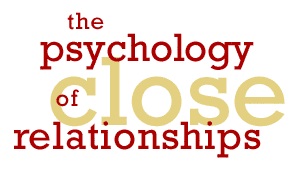  |
  |
|
|
Conflict Is Inevitable Prevention or Intervention? X: "I hate it when you don't put the cap back on the toothpaste tube.""Hating" annoying habits is different from "hating" perceived unfairness or betrayal, and hating the person is certainly worse than hating what the person does. "Hate the sin, love the sinner," the nun told us in Catholic school. Easier said than done -- but research confirms that, if conflict or complaint is focused on a disliked behavior rather than the behaver's character, a response is possible and conflict might be resolved. Relationship maintenance can be approached as we approach the care and feeding of other systems. Do you take your car in for regular tune-ups or wait until it breaks down? Do you see your physician for regular checkups or wait until you break down? We have a choice between prevention and intervention. It seems convenient to ignore small signs of trouble such as hurt feelings or arguments. But by the time relationship problems are magnified, they may be too big for partners to cope with, individually or together. From a common-sense standpoint as well as that of relationship scholarship, prevention is less costly and more effective than waiting to engage in intervention. In the last session we focused on communication as the "stuff" of relationships. In this session we'll examine how communication can go wrong, either in content (disagreement, bad news, or criticism) or process (miscommunication, confusion, and conflict escalation). Relationship maintenance is a tricky subject because so many literate people are tempted to adopt a "how to" attitude to problems: "If I have a problem, I'll get a book or take a course and just fix it." The tricky part comes from the fact that in relationships, it takes two to tango: The relationship is a co-production of yourself and your partner. Neither of you can contribute or manage more than 50% of the enterprise -- but even talking in terms of such numbers of divisions is deceptive. Ideally, you eventually quit "keeping score" and both partners invest in the partnership as mutually important. It is tempting, when we're close, to try manage the whole relationship, to do the other person's part "for" him or her. Resist this urge. You both need skills, you both need assistance -- and you both need to be motivated. If both partners care, and both pitch in to do what is needed to solve problems, resolve conflict, keep the fires burning and stay together, it can work out. But one partner alone, even a superhuman with incredible levels of motivation and skill, can't overcome the cost of a partner who has lost interest and even love. The first step in maintenance, then, must be honest self-assessment: What do I want? What can I do? How far am I willing to go before I stop? Why do relationships end? There are as many reasons for endings as there are for beginnings! (In fact, you can go back to previous lessons and examine why partners might get together. Physical attraction? When looks go, so do partners. Similarity? Then dissimilarity -- even if born of change and growth -- will be their undoing. And so on). We'll examine just a few of the challenges to staying together, before going on to review how we might still make relationships work. |